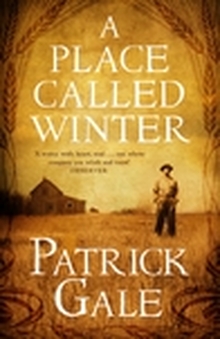
These memories lay in rooms he couldn’t enter. In the quiet moments of lucidity between baths, he had approached them close enough to sense they were wrapped in a grief so powerful that even to put his hand on the doorknobs would fry his skin. (p11)
Moving back and forth in place and time, between his convalescence in the community and a life that has taken him from upper-middle-class England to the newly colonised Canadian prairies in the early years of the twentieth century, the doors to those troubling memories are gradually opened to us.
Since boyhood, probably since his mother’s death, he had periodically indulged in fantasies of being liberated by catastrophe. War would descend around him, or revolution, plague, earthquake, tidal wave, something elemental and huge that would shatter all certainty and stability and leave him suddenly, dizzyingly free. (p59)
Like Jack and Mabel in The Snow Child, Henry is challenged by life in the wilderness. Yet unlike Jay in Soil, he learns to make a success of his farm. In his neighbours, siblings Petra and Paul (reminiscent of the unconventional Kitty and her brother in another story of extreme survival, The Surfacing), he finds support – both practical and emotional – friendship and love. It seems, as Freud famously didn’t say, that love and work have been the making of him. Like Rebecca in Still Life with Bread Crumbs, he’s been given a second chance, until societal disapproval, a violent rapist, war and influenza threaten his happiness once again.
A Place Called Winter is a beautifully written and tender novel about one man’s journey to find himself, loosely based on the life of the author’s maternal grandfather. Harry’s anxieties about his sexuality is made more poignant by the reader’s ability to look back from more enlightened times. But this, along with the references to the racism and sexism of the time, is never heavy-handed. When Petra, wanting to better understand her husband’s relationship with her brother, asks if the men’s connection is emotional as well as physical, he tells her:
“I suppose, in a different world … if everyone felt differently, it would be both. When a thing has always been forbidden and must live in darkness and silence, it’s hard to know how it might be, if allowed to thrive.” (p270)

What was wrong with the boy? We’d given him so much. Clean sheets, sturdy boots instead of moccasins, a proper education. When he was sick, we had the doctor dose him with medicine, not those stinking herbal potions and dances round the fire. When he was lonely, we bade him kneel before the Lord.
Yet he wouldn’t succumb. Parading in bonnets and dresses, he mumbled about being two-souls, male and female both. It saddened us to take the lash to him, but we had no choice. We had to beat the Indian out of him. For his own good.
Now, back to the novel: if you’re interested in the history of the European colonisation of North America, if you enjoy un-soppy romance, if you like to read about characters who are required to keep the essence of who they are secret and/or you simply want to read a novel that’s a pleasure from beginning to end, I can highly recommend A Place Called Winter. Thanks to Tinder Press for my proof copy.





















 RSS Feed
RSS Feed





















